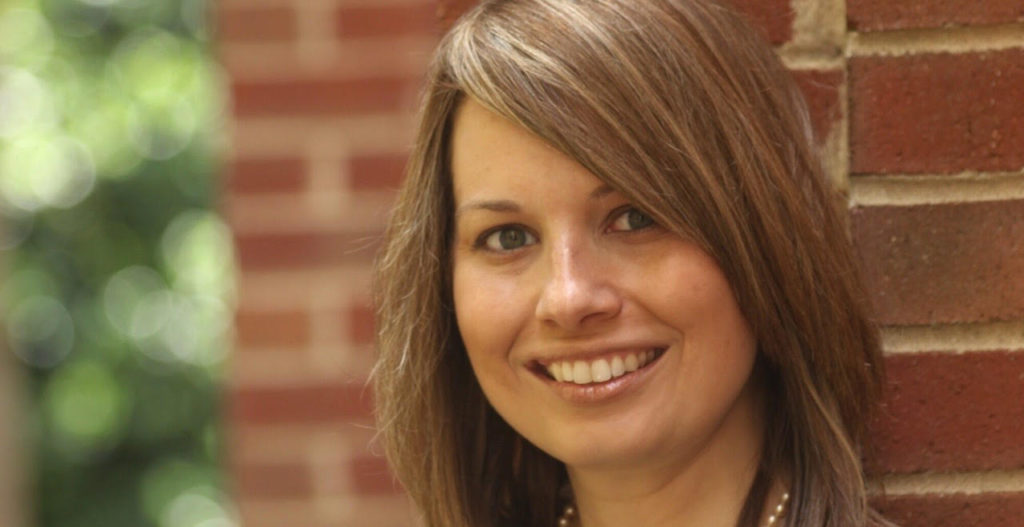Kay Fisher is working on a plan that includes diversity

Kay Fisher
Aug. 4. By Erica Batten. Following Gov. Roy Cooper’s July 14 announcement that public schools would have to operate at limited capacity for the foreseeable future, local districts weighed their options, all of which required students to learn remotely at least part-time. Days later, Charlotte-Mecklenburg Schools revealed the district’s re-opening plan for the fall: Limited in-person instruction for the first two weeks, then back to virtual classrooms.
Kay Fisher has spent the better part of the last two weeks coordinating a massive effort on behalf of her family and hundreds, perhaps thousands, of others in the area.
Like many parents, the Cornelius Realtor and mom was unwilling to face another school year of virtual learning. Although schools adapted quickly to being closed as the coronavirus pandemic gained a foothold in North Carolina in early spring, having to juggle work while managing their children’s school assignments felt untenable for many parents. And kids weren’t thrilled about spending hours in front of a screen with little social interaction.
“Indefinite distance learning creates a strain on families,” Fisher said. “For children, distance learning affects their physical and mental health. For a first grader, now stuck at home with an abusive parent, indefinite distance learning doesn’t give that child much of a chance. Last spring, there were 3,000 students CMS had not heard from since schools closed. For kids whose educational, emotional and social supports are now all distant, remote learning will change the trajectory of their lives. The choice was: I can complain, or I can do something,” Fisher said.
Pandemic Pods and Microschools
It wasn’t long before she found Pandemic Pods and Microschools, a California-based, grassroots Facebook group that serves as a hub for parents to form learning pods, small groups of students who gather two or three times a week—in person—to work on school assignments and explore specific topics. The group also helps parents navigate the logistics of setting up a pod: How to hire teachers, decide on location, comply with legal requirements and handle safety concerns.
After forming just three weeks ago, the main Pandemic Pods page has added almost 30,000 members. Convinced that there is strength in numbers, the California group began looking for regional partners in metro areas around the country to bolster both advocacy and the availability of information.
Fisher also saw the benefit of establishing a singular presence in Mecklenburg County.
“I think it is good for our community leaders—city, state, etc.—to know there are parents in the Charlotte area who are into this,” Fisher wrote in a conversation with another parent on the Charlotte page. “In my opinion, the biggest advantage to growing this group (other than networking) is to have a collective voice within our public school system so we have tools to support our kids with remote learning.”
Fast action
Fisher was concerned that the formation of dozens of similar groups throughout the Charlotte region would water down the collective potency of the movement. So she worked quickly to poll parents on their plans for the upcoming school year and to create individual groups on the Charlotte pods page so that parents from dozens of local schools could find tutors and meeting space—and each other. The Charlotte group now has upwards of 1,100 members.
The whirlwind effort has involved a crash course in the finer points of Facebook, a lot of conversations, and little sleep. Early in the process, Fisher contacted Cornelius Mayor Woody Washam, former NC Sen. Jeff Tarte and Davidson Mayor Rusty Knox to let them know about the groups and to seek their support.
Contradicting the common criticism that the new pandemic pods are just another version of “white flight,” Fisher said that maintaining a regional networking hub helps ensure that no communities are left out as pods form. This week, she contacted leaders in Cornelius’ Latino community and the historically black Smithville community in hopes of forming partnerships. She wants her local school, Cornelius Elementary, to serve as a model for inclusion.
With less than three weeks until the first day of school, Fisher and her husband have yet to form pods for their three children: a kindergartner, a third-grader, and a fifth-grader.
“I don’t feel like I can make any decisions until I can see if we can make our little pod diverse,” Fisher said.
The self-described community service addict has noticed a pattern in the organizations she’s been involved in. From Habitat for Humanity to Davidson Lands Conservancy, Fisher’s mission was to make things better for kids, especially those whose home lives weren’t great.
And although she is not a fan of social media—she’s posted just a handful of times to her personal Facebook page over the past year—Fisher says the pods group is different.
“I feel like this is purposeful,” she said.





